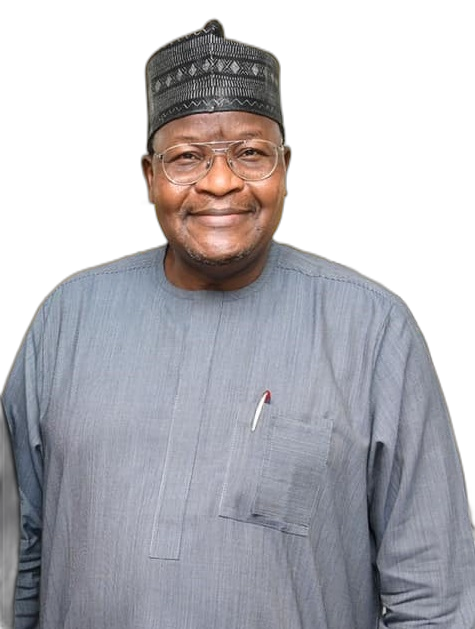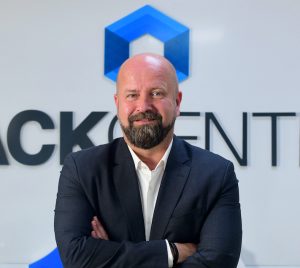Starlink must charge its Nigerian subscribers in the local currency, Naira, the telecoms regulator has ordered the satellite-based internet service operated by US-based SpaceX owned by Elon Musk, amid its plans to bill in dollars.
Starlink has commenced a dollar-denominated pre-order for Nigerians to subscribe to its satellite-delivered internet service following its licensing by the Nigerian Communication Commission (NCC) under plans to extend broadband into rural and underserved parts of the country.
Professor Garba Danbatta, NCC Executive Vice Chairman told the West African Digital Economy Conference 2023 held recently in Abuja, that Starlink, which was licensed by the telecoms regulator on Federal Government’s directive to bridge infrastructure deployment goals in the country, has been told it can’t charge Nigerian subscribers in US dollar.

“Equally,” the NCC chief says, “they have applied for a tariff structure, because whatever services they are going to use must be consistent with a certain tariff structure, which must be approved by the Nigerian Communications Commission.”
The Nigerian telecoms regulatory chief says that Starlink’s request to charge its Nigerian subscribers for its service was rejected by NCC as it contradicts the directives of sister banking regulator, the Central Bank of Nigeria (CBN), that services provided in the country must be charged in Naira.
“Initially, they requested for a tariff structure denominated in dollars. We said, ‘No.’ Consistent with the directives of the CBN, all services to be provided to Nigerians must be denominated in Naira. So, they later on complied with this directive of the Commission and submitted a tariff structure in Naira which has equally been granted by the NCC,” Professor Danbatta says.
“So far as the regulator is concerned, we are good to go. We are waiting for the rollout of services by Starlink in the not-too-distant future,” the telecoms regulator says while explaining why the satellite-based internet service was licensed by the Nigeria to bridge infrastructure gaps needed to broaden broadband penetration across the country.
NCC: Why Nigeria licensed Starlink
“And the reason why the Nigerian government decided to embrace the services of Starlink in the country because of the very slow nature of deployment of broadband infrastructure in the form of fibre cables. This is taking a lot of time. This very ambitious project has been on for close to 10 years, more than 10 years, and we have not made the kind of headway would like to see,” he says.
According to Professor Danbatta, “And I think because there are alternatives. Government in its wisdom decided to embrace an alternative that is credible, and that will bring relief to Nigerians wanting to access the internet at a cost that is affordable. That is why Starlink was granted licence on the directive of the Federal Government.”
“And the reason why the Nigerian government decided to embrace the services of Starlink in the country because of the very slow nature of deployment of broadband infrastructure in the form of fibre cables. This is taking a lot of time. This very ambitious project has been on for close to 10 years, more than 10 years, and we have not made the kind of headway would like to see.”
Professor Garba Danbatta, Nigerian Communication Commission Executive Vice Chairman.
With regards to Starlink, Professor Danbatta says, “the Nigerian Communications Commission with the approval of the Federal Government, has granted them three categories of licences. One, the universal access and service licence, which is an operational licence giving them permission to operate within this country. This is consistent with the rules of engagement by the Nigerian Communications Commission. We have granted a gateway licence meaning they can be able to install their earth station, and I think it’s either they have already done the installation, or they are about to finish the installation. And this earth station can be able to virtually cover the entire country.”
The Nigerian telecoms regulator says that, “when they send signals from outer space from their satellite, this earth station will be the one that will intercept these signals and redistribute the signals to various terminal equipment belonging to the same Starlink. And it is from this terminal equipment that services will be provided on retail basis to homes.”
Starlink, he says “has equally applied to the NCC, they have also been granted an internet service provision licence. And I think that have explained the cost, about $500, but the massive capacity of the bandwidth will be such that this amount of money can be shared, you know, amongst households so that the cost will become affordable.”
While fielding questions at the conference, Professor Danbatta says that provision of infrastructure across States in the country continue to occupy priority attention for NCC because of the need to extend telecoms services across Nigeria.
According to him, NCC “intervenes from time to time to ensure deployment of base transceiver stations. The level of this deployment is such that the amounts of clusters of access gaps we have in the country, at the rate of the deployment these clusters of access gaps, cannot be completely bridged.”
He says further that, “this explains the reason why Starlink was granted a licence because these services to be provided by Starlink will reach all, everything in the country, both areas that are underserved, rural areas as well as areas that are even unserved with communication services.
“So, this is one approach the Nigerian government has decided to adopt in order to bridge clusters of access gaps quickly instead of waiting for the broadband infrastructure in terms of fibre deployment to take place. We know this could take time. In fact, the entire initiative of the Infraco project is supposed to take place, and be completed over a period of four years. Nigerians do not have the patience to wait for four years in order to enjoy broadband services especially 5G services which we talk about.”
For Professor Danbatta, funding will continue to remain “a critical issue” when it comes to provision of infrastructure, and African nations, where the large majority of the world’s unconnected populations reside, need to develop creative solutions towards addressing these challenges.
“African countries would do well to introduce fiscal and monetary policies that are friendly, you know, that will support deployment of broadband infrastructure. Of the 3.7 billion unconnected population of the citizens in the world, the global citizens, one third of that population reside in Africa. Close to 1.3 billion Africans are unconnected. So, we are in a race against time to bring connectivity to our people. And we would do well to face the challenge of infrastructure by deliberately putting in place policies that will support this massive deployment of infrastructure for and in the interest of our citizens,” the Nigerian telecoms regulatory chief says.
Source of Article
